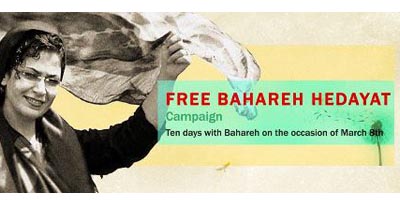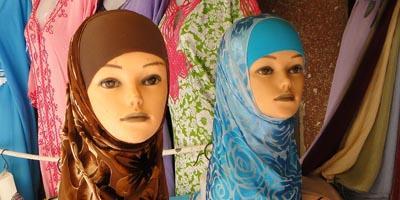In May 2010, The Upstream Journal ran an article about the imprisonment of women who had organized the “Million Signatures” campaign for women’s rights in Iran. Now we revisit the situation of those women…

Poster from Iranian rights group. There are at least 50 women imprisoned for their politics or religion (several are Bahá’í). Here is one example, picked at random: Nasrin Sotoudeh – lawyer and human rights activist, six-year sentence, has served three years. Mother of two. Has launched four hunger strikes behind bars in protest of the unlawful treatment of herself and her family members.
Iran recently executed young Reyhaneh Jabbari. She was hanged on October 25, 2014 after spending seven years in prison for killing a man who attacked her.
It’s not the first time we’ve heard about Iran when it comes to human rights abuse and especially its treatment of women. In May 2010 the Upstream Journal published the story of Bahareh Hedayat and Mahboubeh Karami, among other activists, imprisoned in 2009 for advocating for the “One Million Signatures” campaign to abolish laws discriminating against women.
Mahboubeh Karami was sentenced to three years and may have since been released. Bahareh Hedayat is still imprisoned. She was sentenced for almost 10 years for different crimes she committed such as “insulting the Supreme Leader”, “insulting the President”, “acting against national security and publishing falsehoods” and “acting against national security through holding a protest gathering for women”. She faces another two years for the last accusation but it is on hold for now.
Bahareh Hedayat was not treated for health problems, and now suffers from chronic reproductive system complications. If it stays untreated, she might become sterile. She had a medical furlough for a kidney stone removal in July, 2014, but she was placed back in prison despite the recommendation by physicians of two weeks for the recovery. Her husband, Amin Ahmadian, has pursued a three-month medical furlough for the surgery to ensure that the prosecutor’s office would allow proper treatment and recovery. That office then refused to allow the recovery time.
The notorious Evin prison where she is kept is not equipped to give her the proper after-care. By law, prisoners with severe health problems should be released to be treated, but Hedayat’s case shows the denial of urgent healthcare in Iranian prisons and the negligence of human rights by the Iranian government.
The Gulf Center for Human Rights and the International Campaign for Human Rights in Iran are NGOs currently demanding that the Iran government release Hedayat, amongst others. She is one of more than thirty former students in Evin prison for their opinions and actions, along with many more journalists and other political prisoners across the country. More information about the situation of human rights in Iran is available here.
“Organizing a protest means being beaten, being arrested, being disrespected, being tortured for confessing to false things, being in solitary confinement, being expelled from university.”
– Bahareh Hedayat



